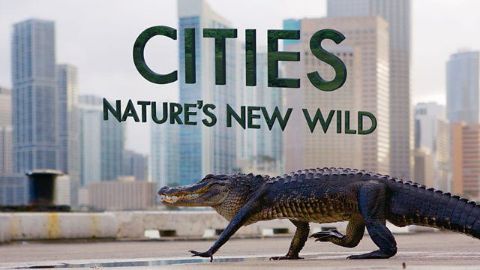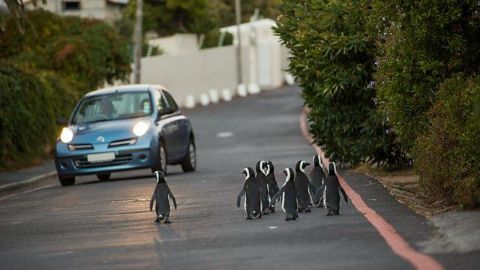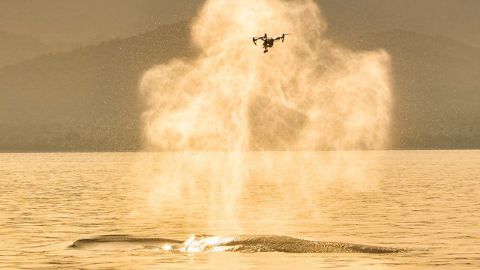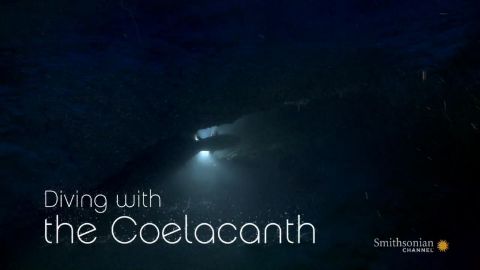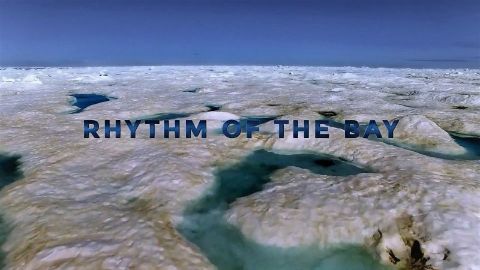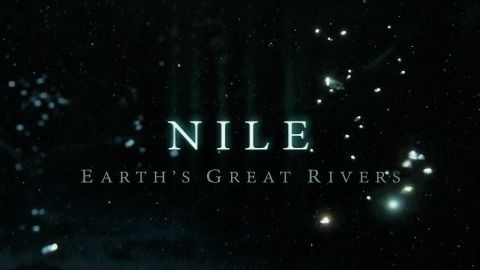Cities: Nature's New Wild • 2018 • 3 episodes •
The world's cities are growing at a faster rate than any other habitat on the planet. And while most of us imagine them to be concrete jungles devoid of nature, for animals of all shapes and sizes they are just a new habitat filled with new and surprising opportunity. With similar needs to humans, these wild animals face similar challenges, and like us, if they play their cards right, they can find everything they need in the city. With the natural world shrinking, and our urban centres continuing to grow, adapting to life in the city has never been more important. This first episode examines what it takes for these wild residents to thrive in the newest and fastest changing habitat on the planet. From smooth-coated otters at home in Singapore and huge colonies of megabats in Adelaide to reticulated pythons living on the streets of Bangkok, experience our cities through fresh eyes - the eyes of the animals that live in them, and discover a wilder side to a world we think we know.
2018 • Nature
More than a billion people around the world commute into cities each day, and they are not alone. The world's wildlife is commuting too. A steady flow of animals journey in and out of cities to find food and shelter or to start a family. Leaving the wilderness they must overcome the unique challenges that the urban world throws at them to benefit from the opportunities on offer. This episode explores whether the secret to an animal's success in this fast-changing world is to keep one foot in the wild and one in the city, becoming a wild commuter. It seems that all over the world animals are finding that the city can offer opportunities that are harder to come by in the natural world. Some, like African penguins, whose population has plummeted by 80 per cent in the last 50 years, find shelter in the city. By nesting in Cape Town they are safer from predators, and with relatively easy access to their fishing grounds they have the best of both worlds. Many other animals commute into cities because they are filled with food. In St Lucia, South Africa, that includes hippos. Able to eat up to fifty kilograms of grass in a single sitting, they have developed a taste for the short, manicured lawns and come to town every night to dine out. St Lucia's human residents have learnt to give the hippos the space they need during their night-time raids. Black bears need to eat more than 20,000 calories a day to survive their six-month hibernation through winter, and using their acute sense of smell they can easily track down leftovers. In North America they come into towns and cities in search of food. Many animals displaced from their natural habitat are now using their wild skill set in the city to help fulfill their needs. Could this be the beginning of a new and very modern migration?
2018 • Nature
In the last 30 years the world's urban areas have almost tripled in size, changing at a rate wildlife has never experienced before. As cities are built, animals are pushed out of their natural homes. Their stories are the most surprising and captivating of all. Today, these 'wild outcasts' find themselves fighting for their place in a land that once belonged to them. In this episode we feature elephants in Sri Lanka and see that competition between them and humans for land and resources is resulting in deadly territorial conflicts, which demand solutions. And on the Pacific coast of Costa Rica we meet a troop of capuchin monkeys and learn how our behaviour is affecting them, and raising big questions about their future. But we also discover where we learn to live with wildlife as neighbours, and give it the space and resources it needs, it can thrive. The resulting relationships between human and animals can be mutually beneficial. We meet an Amsterdam heron called Kiri who has been visiting the same house twice a day for the last 17 years, befriending its owner, and the Florida manatees whose population has recovered to such an extent under the guardianship of local human residents that, in recent years, they have been taken off the endangered species list, and contributed to a massive boom in the local tourism industry. We meet the swiftlets who have evolved to live only in people's houses and specially built swiftlet hotels in Indonesia. And the surprising story of a population of tiny foxes on a Californian island whose presence benefits the hardened military personnel of a US naval base. This hopeful but realistic episode culminates with the return of charismatic ocean giants to the world's most iconic city, as humpback whales breach against the New York skyline.
2018 • Nature
